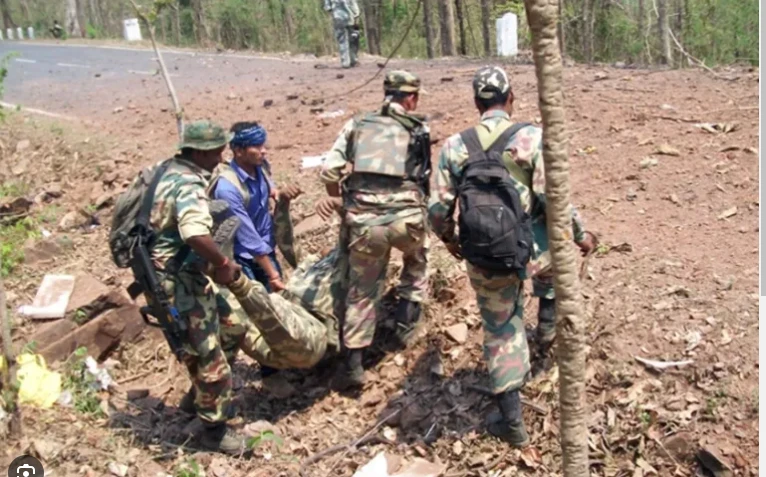Indian security forces kill eight Maoist rebels

Stay tuned with 24 News HD Android App

Indian security forces have killed at least eight Maoist insurgents, police said Friday, the latest clash in a decades-long conflict being waged in the country's central forests.
The guerrillas were shot dead over two days in a remote part of the central state of Chhattisgarh, where several deadly assaults on rebel encampments have occurred this year.
Security forces had cordoned off a forested area in Dantewada district after receiving intelligence that insurgent cadres were meeting there.
Seven rebels were killed on Thursday while another was shot dead on Friday, police inspector general Om Prakash Pal told AFP.
"The Maoists were engaged in intermittent firing" at security forces all through Thursday, he said.
A large quantity of weapons including automatic firearms had been recovered from the site of the gun battle, he added.
More than 100 Maoists have been killed in India this year, according to police figures, the vast majority in Chhattisgarh.
The insurgents, who are known as Naxalites and say they are fighting for the rural poor, have been carrying out guerrilla attacks since 1967.
India has deployed tens of thousands of security personnel to battle the Maoist rebels across the insurgent-dominated "Red Corridor", which stretches across central, southern and eastern states but has shrunk considerably over the past decade.
It has also pumped millions of dollars into infrastructure development in remote areas and claims to have confined the insurgency to 45 districts in 2023, down from 96 in 2010.
Earlier this month, police said 12 insurgents were shot dead by Indian security forces in Chhattisgarh's Bijapur district.
Nearly 50 guerrillas were killed in the state in April, according to authorities.
The conflict has also seen a number of deadly attacks on government forces over the years.
Sixteen commandos were also killed in the western state of Maharashtra in a bomb attack that was blamed on the Maoists in the lead-up to India's election in 2019.
